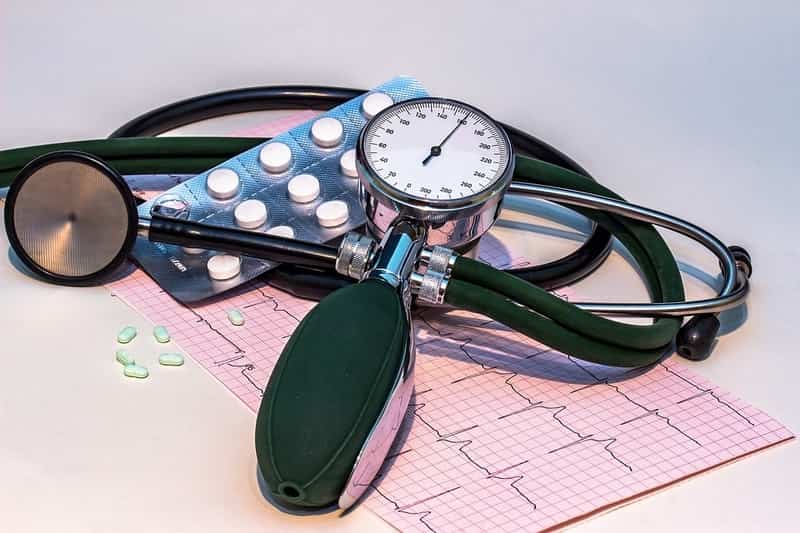Blood pressure is the force exerted by the blood on the walls of your blood vessels. Low blood pressure is a condition when blood pressure is relatively lower than the standard figures. Normal blood pressure ranges from 90/60 mm Hg to 120/80mm. Anything below 90/60 mmHg is considered as hypotension and can create many problems if not corrected. Low blood pressure can be caused due to several reasons like blood loss during injury, infections, pregnancy, impaired blood circulation, and some medications.
Hypotension can be classified into three major types — orthostatic hypotension, postprandial hypotension, and naturally mediated hypotension. Hypotension, i.e., low blood pressure, can be a precursor for many disorders. It becomes crucial to be proactive and notice when you are moving into a hypotensive state.
Some of the symptoms of low blood pressure are listed below.
1. Blurry vision
Blurred vision is the condition when you lose your clear sight of vision. It might affect one or both of your eyes as well as your peripheral vision.
When you experience symptoms of blurred vision along with headache, loss of muscular control, and nausea, immediately contact for help and meet your health care provider who can map out a correct treatment plan to treat the symptoms.
2. Lightheadedness
Brain is substantially affected by the fluctuations in blood pressure due to inadequate supply. Light-headedness can be explained as a feeling when your entire body feels as if it has no weight, and your head feels dizzy due to insufficient blood supply.
When you think you have lost blood or have been experiencing it for some time, instantly get the diagnosis and treatment plan by the doctor who can get it regular with correct medications and procedures.
3. Nausea and vomiting
Nausea is the feeling and sensation of stomach discomfort and often is the first stage of vomiting. It can be called the ‘urge to vomit.’ Low blood pressure might cause you to feel nauseous when enough blood is not supplied to your stomach. This can lead to the expelling of stomach contents because of the feeling that lasts for a long time.
If you have not eaten anything for the last few hours and still feel nauseous, immediately go to a physician in case the sensation doesn’t subside.
4. Shortness of breath
In many hypotension cases, an individual feels breathless and may also complain of chest pain. This might arise due to significantly lower blood supply to the heart. This can be a precursor of heart disease or stroke if it persists for extended periods.
When the individual experiences breathlessness and chest pain, immediately seek the advice of a health care provider because this may lead to a medical emergency.
5. Fatigue
It is a broad term that represents an overall lack of energy and constant tiredness. Fatigue is a typical sign of hypotension and also a common symptom for several medical disorders ranging from mild to extremely serious.
Medical attention is urgently needed when this is accompanied by nausea, vomiting, and shortness of breath.
6. Dizziness
Dizziness is the sensation of being imbalanced and light-headed. It can also cause fainting sensations.
Dizziness is quite normal, but when you feel dizzy for extended periods without a proper reason, takes into notice whether you are experiencing any other hypotension symptoms.
7. Unconsciousness and syncope
Loss of sensation to give a proper response to stimuli and falling of pulse can be defined as unconsciousness. A person usually experiences this when there are changes in blood pressure, and he experiences confusion and dizziness.
Syncope is a condition when there is an inadequate blood supply to the brain.
8. Pale and clammy skin
Pale and clammy skin is another overlooked symptom of hypotension. Excessive sweating, exhaustion, and fatigue can cause moist skin. The paleness of skin is caused by a lack of proper blood supply to the surface.
Hypotension, if not corrected, can prove detrimental to an individual’s health and, for extended terms, be an underlying cause of severe medical disorders. A health care provider, after proper examination, will prescribe medications and lifestyle modifications that can treat the causes and bring blood parameter healthy.
When the individual is educated and well informed, he may notice the symptoms and be proactive in treating hypotension when corrected at the right time by identifying the symptoms that can prevent the risk of many other disorders.
Critical monitoring of blood pressure levels along with a healthy diet and exercise will ensure no additional complications are developed, and you lead a long, healthy life.


